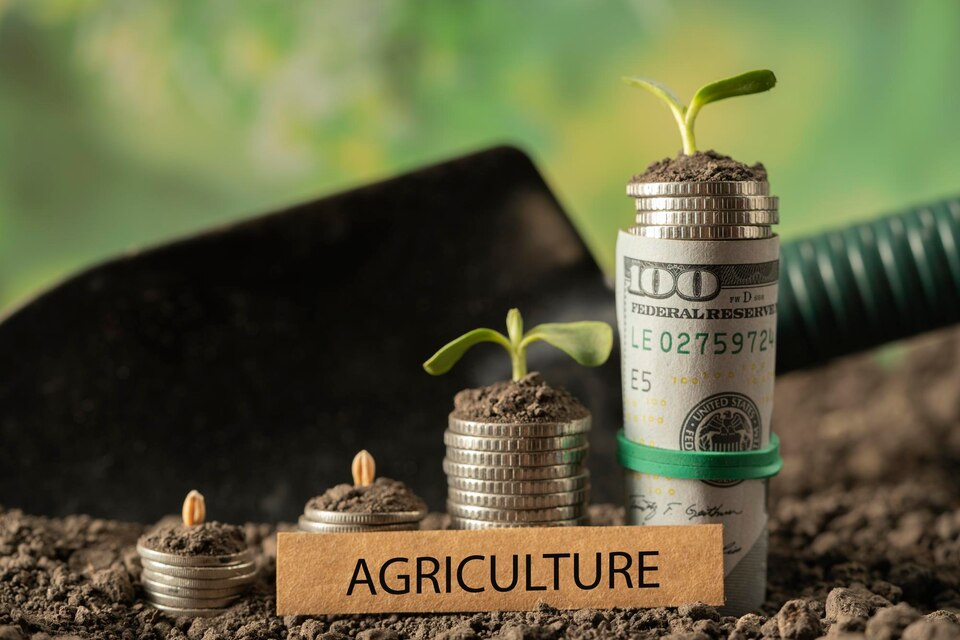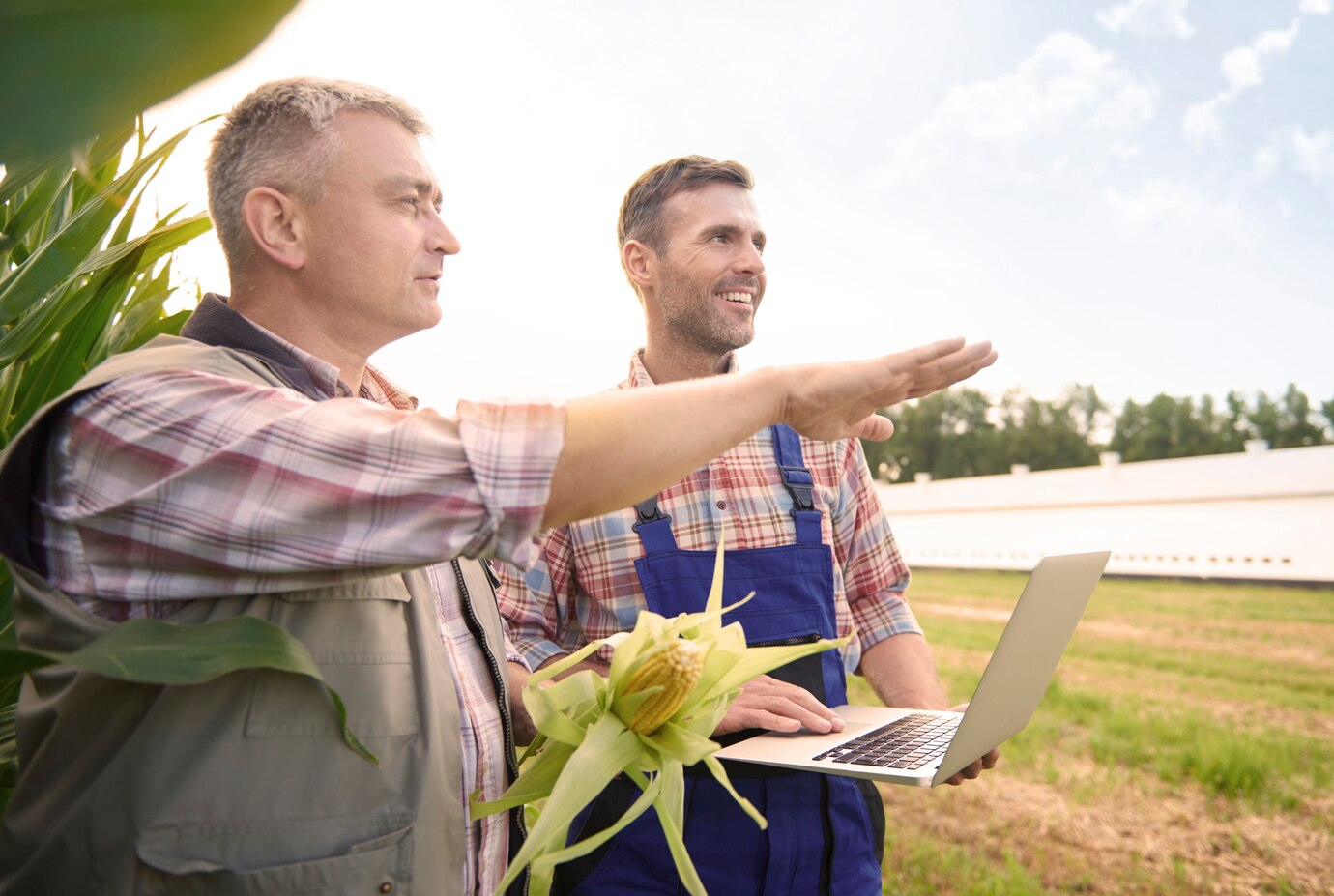
Investing in farmland has emerged as a compelling option for those seeking stability and growth in their portfolios. This type of investment not only offers potential returns but also provides a hedge against inflation and economic volatility. As urbanization continues to expand, the demand for food and sustainable agriculture practices grows, making farmland an increasingly valuable asset.
Engaging in farmland investments allows you to diversify your holdings while contributing to essential food production. The expanding global population means that agricultural land is likely to appreciate in value, presenting an opportunity for both capital gains and income generation through leasing. Understanding the dynamics of this market is key to making informed investment decisions.
As you consider farmland investments, it’s crucial to evaluate location, type of crops, and land management practices. Each of these factors can influence your returns and the long-term viability of your investment. By exploring these elements, you can position yourself to capitalize on the unique benefits that farmland can offer.
Overview of Farm Land Investments
Farmland investing presents a compelling opportunity for portfolio diversification, combining tangible asset ownership with potential for both income and appreciation. Unlike traditional real estate, it benefits from inelastic demand for food production while serving as a hedge against inflation. Key advantages include stable lease income from farmers, long-term value growth from increasing global food needs, and potential tax benefits through agricultural exemptions.
However, investors must carefully evaluate risks like commodity price volatility, operational complexities of active farming, and environmental factors such as water rights and soil degradation. Success requires thorough due diligence on local market conditions, zoning regulations, and sustainable land management practices. For passive investors, farmland REITs and crowdfunding platforms offer accessible entry points without direct management responsibilities.
Benefits of Investing in Farm Land
Farmland provides several benefits that appeal to investors. First, it represents a tangible asset, which often retains value better than some financial investments.
Additionally, farmland can produce income through leasing to farmers or engaging in agricultural activities directly. Rental income can provide a steady cash flow, and productive land may appreciate in value over time due to increasing demand for food and sustainable practices.
Tax incentives are also worth noting. You may qualify for exemptions or deductions related to agricultural property. There’s potential for diversification, as farmland often behaves differently from stocks and bonds, offering a hedge against market volatility.
Risks and Considerations
While farmland can be lucrative, it carries inherent risks. Market volatility in agricultural prices can affect your return on investment. Changes in legislation or subsidies may also impact profitability.
Environmental factors present another concern. Drought, natural disasters, or soil degradation can diminish land productivity, leading to losses. You must also consider the management aspect—expertise is essential in assessing land quality and agricultural practices.
Liquidity poses a significant risk as well. Selling farmland quickly may be challenging, especially in poor market conditions. Additionally, you should account for ongoing maintenance costs and potential capital needed for improvements or repairs.
Types of Farm Land Investments

Farmland investing offers multiple approaches tailored to different goals and involvement levels. Passive investors can lease to farmers for steady income, while active investors may profit from operating farms or specialty crops like organic produce. Long-term buyers benefit from land appreciation driven by rising food demand and limited arable land. Alternative options include farmland REITs and crowdfunding platforms for hands-off ownership. Sustainable practices like regenerative agriculture can boost both yields and land value while appealing to eco-conscious markets. With proper due diligence on soil, water rights and local conditions, farmland serves as a stable, inflation-resistant asset that can generate both income and appreciation.
Direct Ownership
Owning farm land directly allows for complete control over investment decisions. You can choose the type of crops to cultivate, implement land management practices, and decide when to sell or lease the property.
This investment can generate income through farming operations or leasing to farmers. It often appreciates over time, contributing to your overall wealth.
Consider factors like soil quality, climate, and location when purchasing land. Consulting with agricultural experts can enhance your chances for success.
Agricultural Investment Funds
Agricultural investment funds pool money from multiple investors to buy and manage farm land or agricultural assets. This option offers diversification and professional management, reducing individual risk.
These funds may invest in various sectors, including row crops, livestock, and organic farming. They typically focus on sustainable practices to maximize long-term returns.
Fees are generally charged for management and administration, which can impact net returns. Researching the fund's performance history and management team is crucial before investing.
Stocks and REITs
You can invest in agriculture through publicly traded stocks or Real Estate Investment Trusts (REITs) focused on farm land. This approach provides liquidity, allowing you to buy or sell shares easily.
Stocks in agricultural companies may include producers, distributors, or equipment manufacturers. You benefit from capital appreciation and dividends.
REITs enable you to invest in real estate without owning it directly. They often focus on income-generating property and distribute a significant portion of earnings to shareholders. Ensure you evaluate the specific REIT's focus and performance history.
Analyzing Market Trends

Smart farmland investing requires studying both cyclical patterns and long-term megatrends that drive value. Historical data shows U.S. farmland has delivered average annual returns of 10-12% over 30 years, outperforming many traditional assets during inflationary periods. Current market dynamics reveal three key trends: rising demand for irrigated cropland in water-secure regions, premium pricing for organic-certified acreage (selling for 30-50% above conventional farms), and growing institutional investment through farmland REITs.
Climate change is reshaping viability maps, with emerging "climate-resilient" regions like the Upper Midwest attracting premium interest. Savvy investors combine USDA land productivity data with forward-looking indicators like infrastructure projects, commodity futures, and generational farm transfer rates to identify undervalued markets.
Historical Performance
The historical performance of farmland investments offers valuable insights. In the past two decades, farmland has appreciated significantly, with average returns often outpacing traditional asset classes like stocks and bonds.
- Annual Returns: Historically, farmland has yielded returns of around 10% on average.
- Inflation Hedge: Farmland tends to act as a hedge against inflation, as value often increases along with rising prices.
Different regions exhibit varying performance based on climate, soil quality, and local economies. Assessing these factors can help to pinpoint stronger investment opportunities.
Future Projections
Future projections for farmland investments suggest continued growth, driven by increasing global food demand. As the population rises, the need for sustainable agriculture will intensify.
- Market Demand: Analysts expect prices to rise by 3-5% annually.
- Technological Advancements: Innovations in agricultural technology could further enhance productivity, making investments more attractive.
Keep an eye on market trends such as urban expansion and changing consumer preferences, as these can significantly impact land values. Understanding these dynamics is essential for optimizing your investment strategy.
Strategies for Successful Investments
The most successful farmland investors combine financial acumen with ecological awareness, creating value that extends beyond simple land appreciation. Diversification acts as your first line of defense - spreading investments across different geographic regions, crop types (row crops vs permanent plantings), and operational approaches (leased vs owner-operated).
Sustainability transforms from buzzword to profit driver when implemented through precision agriculture technologies, regenerative practices that boost soil health, and water conservation systems that future-proof your asset. The real magic happens when these strategies intersect: diversified sustainable farms command 15-20% higher resale values while demonstrating lower risk profiles. Institutional investors now prioritize properties with verifiable ESG credentials, creating a new premium market segment.
Diversification Tactics
Diversification is essential in farmland investments. By spreading your investments across various crops, geographical locations, and farming methods, you reduce risk.
- Crop Diversity: Invest in a mix of crops like grains, vegetables, and fruits. This protects against market fluctuations in specific commodities.
- Geographic Spread: Consider properties in different regions. Weather patterns and soil types vary, influencing yield and market prices.
- Investment Vehicle Variation: Explore different investment types, such as direct ownership, REITs, or crowdfunding platforms. Each has its benefits and risks.
Implementing these diversification strategies can enhance resilience against market and climate uncertainties.
Sustainable and Ethical Considerations
Incorporating sustainability into your farming investments is increasingly vital. You can often achieve long-term success by prioritizing environmental health and ethical practices.
- Organic Practices: Opt for organic farming methods. They can attract premium prices and demand, boosting profitability.
- Soil Health: Invest in farms that use regenerative agriculture techniques. These preserve soil quality and promote biodiversity, leading to better yields.
- Community Engagement: Build relationships with local communities. Ethical practices enhance your brand and foster goodwill, potentially leading to better market access.
Balancing profit with sustainability positions you as a responsible investor, enhancing both reputation and long-term success.
Legal and Tax Implications

When investing in farmland, understanding the legal and tax landscape is crucial. Your ownership structure can affect your liabilities and tax obligations significantly.
Ownership Structures
Choosing the right ownership structure can influence your liability and tax treatment. Common structures include:
- Sole Proprietorship: You own the land individually. This can lead to personal liability but is straightforward to manage.
- Limited Liability Company (LLC): This provides liability protection and allows for flexible tax treatment. Members are not personally liable for debts.
- Partnership: If you partner with others, this could help pool resources. Each partner's liability typically correlates with their investment.
- Corporation: This structure limits personal liability but may involve more regulatory scrutiny and double taxation.
Each option has distinct advantages and disadvantages. You should assess which structure aligns with your investment goals and risk tolerance.
Tax Advantages and Obligations
Investing in farmland offers several tax advantages. Common benefits include:
- Deductible Expenses: Costs related to farm operations, like maintenance and equipment, can be deductible, reducing taxable income.
- Depreciation: You can depreciate the value of buildings and equipment over time, which lowers tax liabilities.
- Capital Gains Tax Rates: Farmland may qualify for lower capital gains tax upon sale. Holding land for more than a year usually results in favorable rates.
However, being aware of ongoing tax obligations is essential. You must keep accurate records of income and expenses. Additionally, be prepared for property taxes, which can vary by region.
Understanding these implications helps you make informed decisions and optimize your farmland investment strategy.
Lucas Land: Your Gateway to Quality Farm Land Investments

Lucas Land offers an exceptional opportunity for investors seeking quality agricultural land to enhance their business portfolios. Specializing in high-quality, well-managed farmland, Lucas Land provides access to prime real estate that supports diverse agricultural activities. With a focus on sustainable practices and expert guidance, investors can benefit from the increasing demand for food and the necessity of sustainable agriculture, ensuring both profitability and long-term value appreciation.
By partnering with Lucas Land, investors gain not only valuable land but also the resources and expertise needed to navigate the agricultural market effectively. The company promotes sustainable farming practices and fosters relationships with local communities, contributing positively to the economy. This strategic approach positions investors to capitalize on the growth potential of farmland, making it a compelling choice for those looking to diversify their portfolios and secure a stable future.

Get a no-obligation offer in just a few minutes.





.webp)




.webp)
